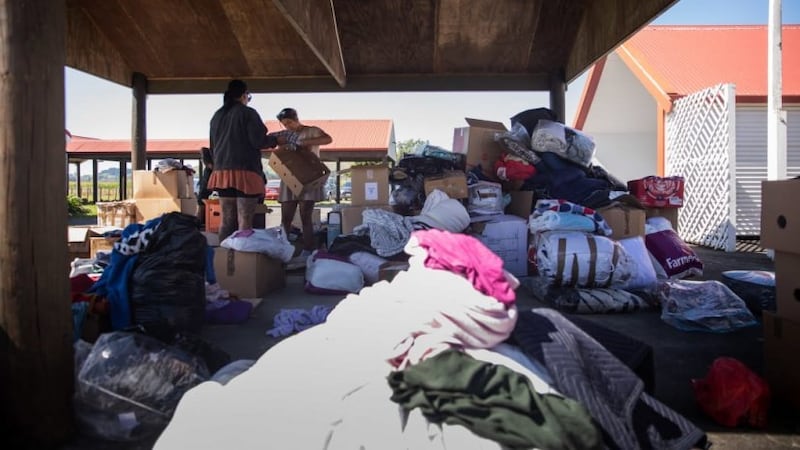Photo / RNZ / Samuel Rillstone
Michelle McIlroy is exhausted, not that she says she has time to be.
"You collapse at night and your bones are sore," she chuckled. "But you go, 'Snap out of it, you've gotta carry on! We'll collapse later.'"
McIlroy is running the distribution centre set up at her marae, Hinemihi, on the outskirts of Wairoa - the Hawke's Bay town devastated by floods a week ago that until Sunday, was cut off from the outside world.
From the crack of dawn until well after dusk she coordinates the marae's disaster response, which involves whānau cooking hundreds of meals, sending out packs, offering labour, or a meal and a hug.
One week on, Wairoa is still cleaning. The destruction is still everywhere to see from the night the river swallowed half a town. About 250 homes were inundated, including McIlroy's.
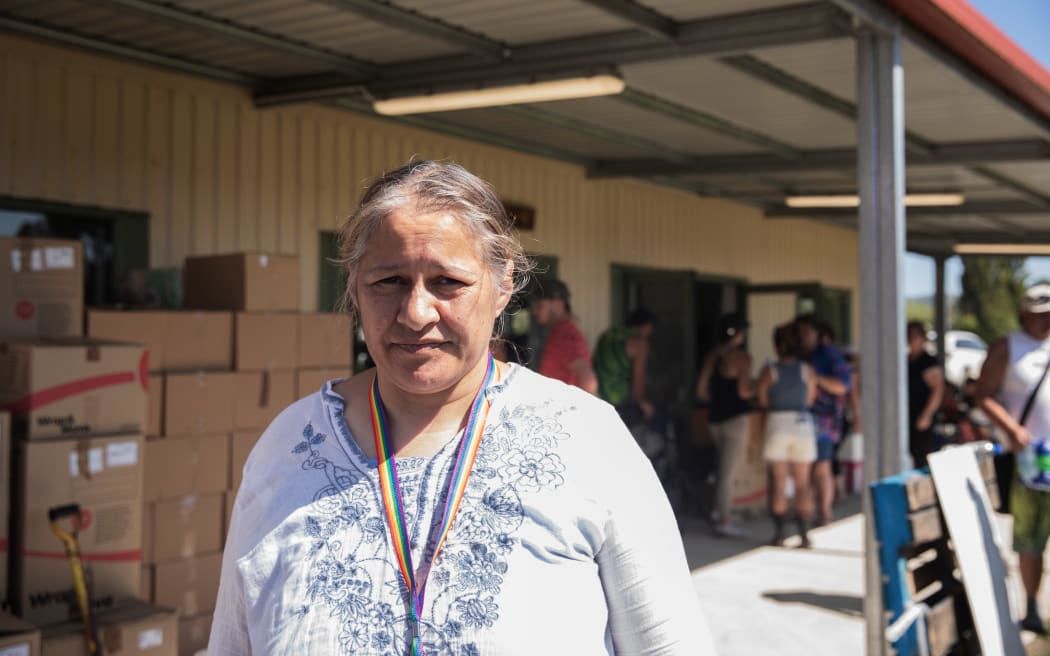
Photo / RNZ / Samuel Rillstone
The water rose at about 6am last Tuesday, the lifelong local said, and it only took a few minutes to ruin her home of decades.
"It was silent," she recalled. "You would look at it and be like, 'Oh, it's down there.' Next minute it was up to your hip.
"Our internet was down, no power, and none of us could ring 111, so we had to save ourselves. As I was driving I was stopping at houses, just had my hand on the car horn screaming, 'Move get out of your house! The river's coming!'
"My poor kids were watching the river following us as their mother's running into houses telling people to get out."
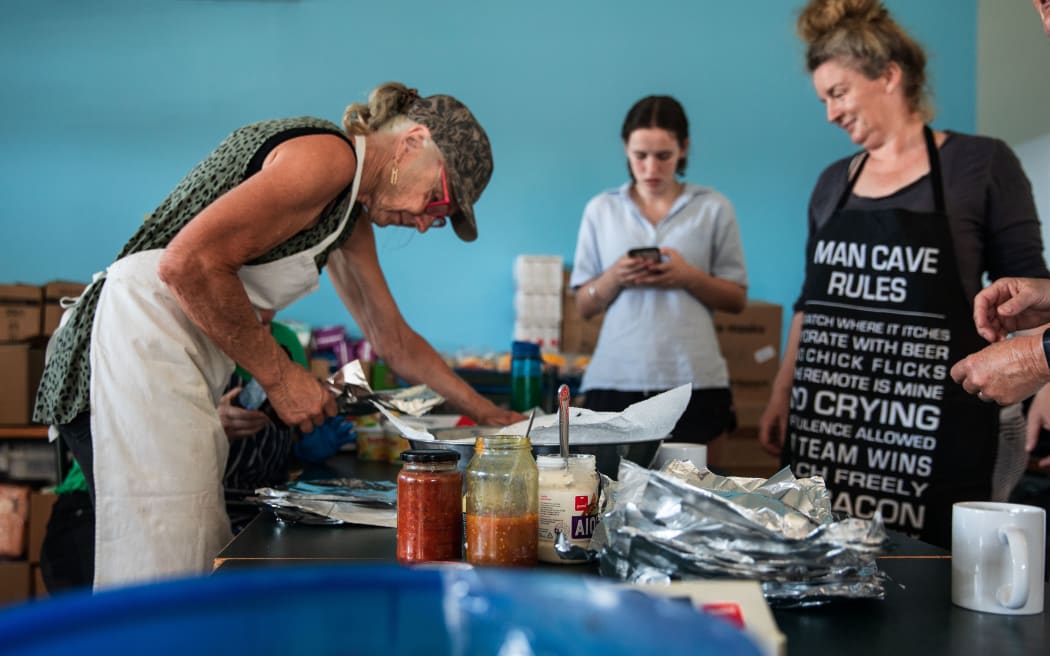
Photo / RNZ / Samuel Rillstone
McIlroy raced to her marae, one of the few places on Ruataniwha Rd that did not flood. It is where she has been ever since, helping everyone else while the few family photos she could salvage dry on the concrete out front.
Not the only one
Wander through the north of Wairoa, and the damage is still clear. Soldiers march down the streets with shovels, while bulldozers roll out of driveways with more buckets of silt and muck.
On the bridge to the largely unaffected town centre, over a river still murky and menacing - but at least it's back on its path - trucks loaded with debris rumble past regularly. They have been at it for a week but still have so much to clear.
Street after street is piled with beds, toys, saturated books, and even cars stuck in muck. Sections are sapped of colour: gardens, grass and concrete all the same mud brown of dried silt and dust.
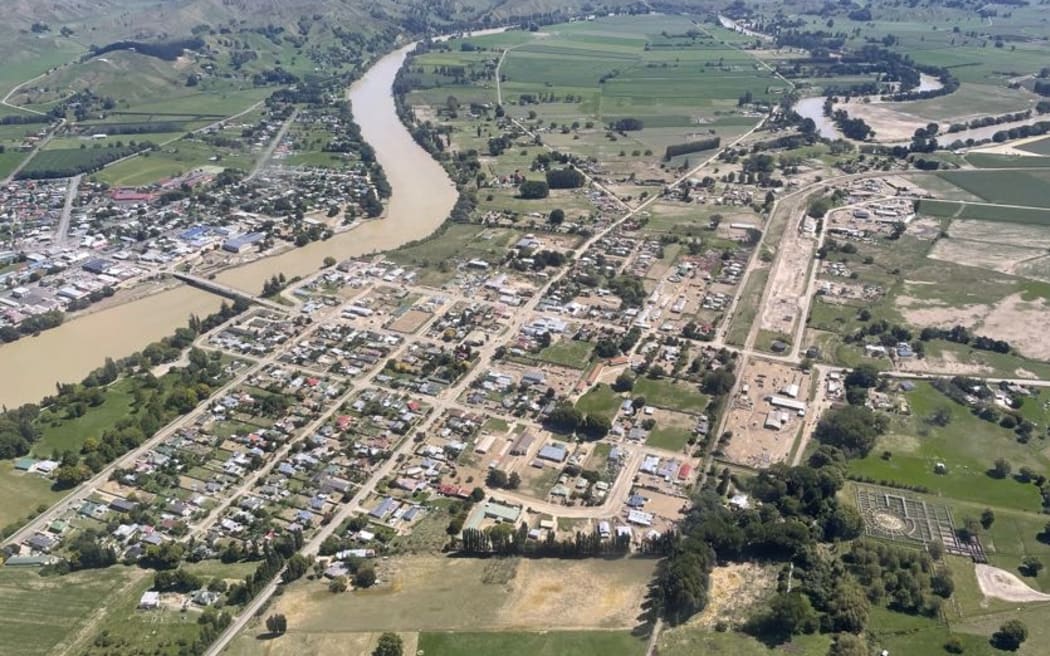
Photo / RNZ / Kate Green
Mary Jarden Lewis lost her home too.
"When I left our property after rescuing my mother and my sister, the water was up to my waist. I shut the gate so none of my stuff could float out on the road."
Jarden Lewis has been running the kitchen at Hinemihi marae since, where dozens of whānau work from dawn until well after dusk in what has become the hub for Wairoa's response.
Inside, the wharekai is brimming with donated kai. Dozens of people sit at a table, wrapping sandwiches that will be dropped off to those cleaning up in town.
On the other side, others sort packs with essentials like nappies, sanitary items and bottled water. Out front, they sift through donated clothes: the good ones in one pile, paru ones in another.
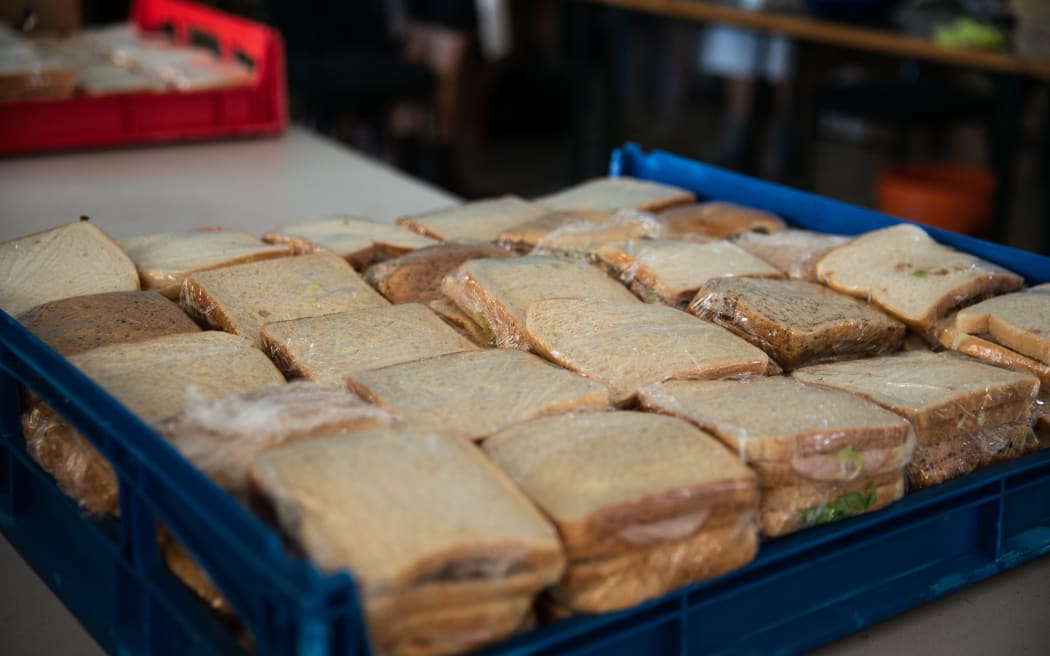
Photo / RNZ / Samuel Rillstone
Out back, Steve Foley - whose home was unaffected - sweats over the barbecue all day.
"Just whatever, eh, taking the meat, stocktaking meat, meat's coming from everywhere, all angles. We're doing 600 meals, three times a day.
"It's for Wairoa, bro, it's home. We're in there and just gotta do it. Wairoa's going to get back to where it was, bro."
The donations keep pouring in. Ute trays of meat arrive by the minute, farmers drop off stock and vegetables, others volunteer their time, and other goods come from afar. Waikato-Tainui, Ngāti Porou and other iwi have all sent goods or pūtea.
"We're pumping along, whānau," said Jarden-Lewis. "We're feeding the people, feeding the people."
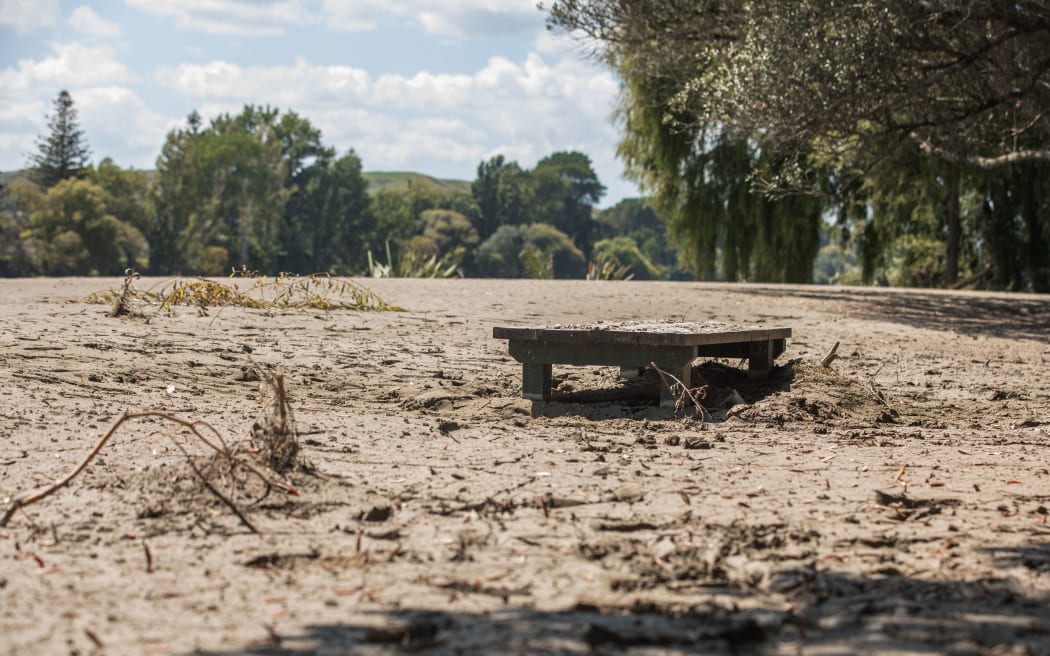
Photo / RNZ / Samuel Rillstone
Fatigue setting in
Michelle McIlroy is being pulled in all directions as the response keeps rolling; more kai arrives, others who need help arrive. Who works where, and what still needs doing? It's what marae do best, she said, and it's been rolling since the floodwaters arrived.
But while the aroha here is strong, concerns are mounting. One week on, McIlroy said people were exhausted. Many of the homes in this town were uninsured, and incomes here were low.
Now questions are seeping in, such as: How will they rebuild? And where?
McIlroy said so many had to run for their lives and lost everything but that trauma had not quite been processed. Support and awhi would be needed for a long time.
"It's post all this chaos, it's the recovery. How do we deal with all of that? Half of the whānau here are uninsured, [it's a] low socio-economic area, and now we're getting our houses condemned. How do we fix that?"
They don't have the answers yet, but the whānau at Hinemihi are determined. It might take a while but Wairoa is going to bounce back.
-RNZ

